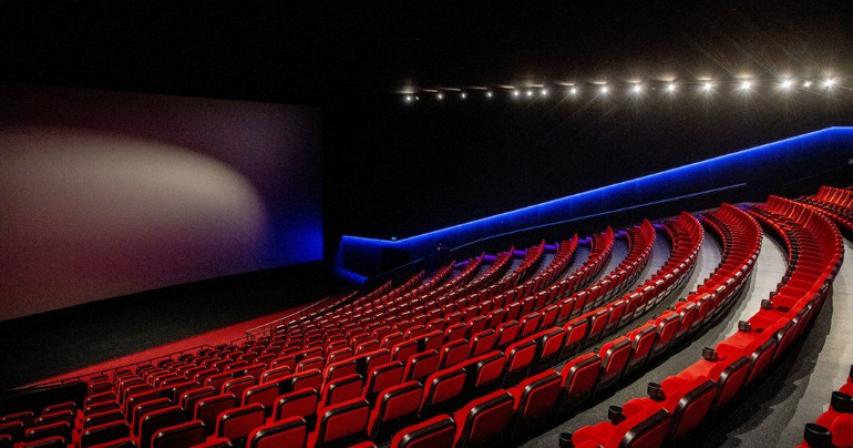Netflix boss - Film fans want joint release dates for cinema and streaming
- 3 years ago

More films will be jointly released in cinemas and on streaming services in future because of a shift in viewing habits, a Netflix boss has predicted.
Cinemas have traditionally enjoyed a period of screening exclusivity, known as the theatrical release window.
But the pandemic has pushed films to streaming services, with Warner Bros moving their 2021 catalogue online.
Netflix chief Greg Peters said the pandemic has shown "consumers want" simultaneous releases.
He told a virtual session at Morgan Stanley's Technology, Media & Telecom Conference that "consumer choice" should dominate decisions.
"We've been supporting [simultaneous] release for a long time, [and] maybe shorter theatrical windows. So I would say we're enthusiastic to see a shift in enabling more and more of that", said Peters, who is Netflix's Chief Operating Officer.
"At the end of the day, it's hard to buck that trend for too long, and I think that that's eventually where things go."
Cinema release window 'vital'
In response, Phil Clapp, chief executive of the UK Cinema Association, told BBC News there was "no evidence" that consumers have strong feelings either way on the existence of the theatrical window.
"What we do know is that most would say that the very best place to see a film is a cinema theatre," he said.
"After almost a year of being confined to watching movies at home, audiences are hugely excited about the chance to once again enjoy the big screen experience."
The Covid-19 pandemic continues to have a huge impact on the cinema industry, with theatres worldwide remaining largely closed for the past year.
Many blockbusters, including the latest James Bond instalment No Time To Die, Marvel's Black Widow and Top Gun 2, are on hold.
In October, Cineworld announced the temporary closure of its UK cinemas, putting 5,500 jobs at risk. The firm blamed the delays to big-budget films.
Danny Boyle, Steve McQueen and other leading British film-makers have since called on the UK government to offer financial support to Britain's big cinema chains.
On Wednesday, UK Chancellor Rishi Sunak committed £390m to help arts venues in England re-open as part of the annual budget.
Clapp says the existence of a period of theatrical exclusivity is vital, especially when cinemas eventually reopen and Covid-19 restrictions lift, as it will "enable each film to realise significant value at the box office".
"This in turn generates revenues for future productions in a way which would not be the case were those titles to be immediately released onto streaming platforms" he says.
"It also gives each cinema operator the confidence to invest in further improving the cinema experience."
In 2019, nine films made more than $1bn (£715m) at the global box office - including The Lion King, Joker, Avengers: Endgame and Captain Marvel.
By contrast last year Christopher Nolan's Tenet - a film with a budget of $205m (£150m) - was the only mega-budget movie to be released in cinemas, grossing around $350m (£270m).
Release date battle
This financial strain, coupled with rise of streaming services among viewers stuck at home, has escalated tensions between directors, movie theatres and production studios.
Nolan said he feared studios would use its performance in some countries as an "excuse" when considering whether to release other films in cinemas.
He said they should focus on "adapting" and "rebuilding our business".
In December, AMC, owners of the Odeon cinemas in the US, entered "urgent talks" with Warner Bros after the film maker said all releases would be available to stream instantly in the US.
They had originally agreed to allow only one film, Wonder Woman 1984, to be shown simultaneously on HBO Max.
It followed AMC's initial ban on Universal films after it announced plans for simultaneous release schedules. The two firms eventually agreed in July that Universal films can go to digital services after just 17 days of viewing in cinemas.
Source: BBC
Comments